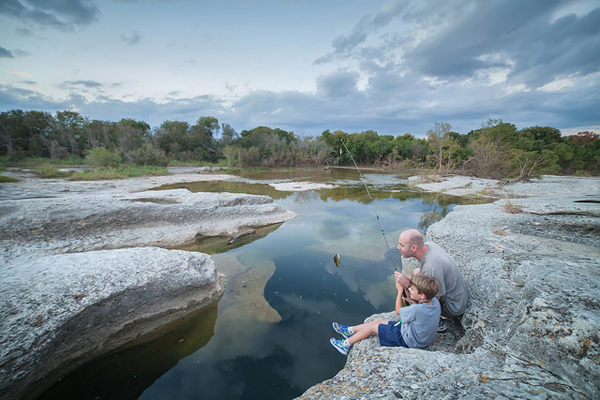- South Texas Students Meet Accordion Music Icons Los Tigres Del Norte In Edinburg Thanks To Khs America/Hohner Alianza Académica Initiative
- Fragile Planet Offers a Nighttime Wildlife Experience
- Falcons Soccer Off & Running
- Cameron County Receives Funds to Improve Two Parks
- Falcons Complete First Half of 32-6A
- School District to Help out Victims of California Wildfires
- Sand Castle Days Continued Despite Unexpected Weather
- Ready for District
- Discussion of Garbage Dumpster Rates, Agreements Between State & City on Highway Regulations, and More
- 31st Annual Shrimp Cook-Off is Right Around the Corner
Texas Parks, Wilderness Areas to Benefit in Conservation-Fund Revival
- Updated: March 8, 2019

Since 1965, the Land and Water Conservation Fund has tapped revenues from offshore oil and gas development to preserve public lands, including McKinney Falls State Park. Photo: Roy Niswanger/Flickr
by Eric Galatas
AUSTIN, Texas – In a rare display of bipartisanship, the U.S. Senate last week passed a measure by a vote of 92-8 to reauthorize the Land and Water Conservation Fund permanently. Now, all eyes are on members of the House, who could vote on a public-lands package as early as next week.
Tracy Stone-Manning, vice president for public lands at the National Wildlife Federation, said more than 75 percent of Americans support the program, which uses fees from offshore oil and gas drilling to protect public lands.
“This one issue – the ability to bring people together around public lands, around protection of our wildlife – has punched through as something that is so uniquely and beautifully American that it has brought the Senate together,” she said, “and we’re hoping it does the House as well.”
For nearly 50 years, the program has helped create ballfields, swimming pools and playgrounds in Texas, and helped protect Lower Rio Grande National Wildlife Refuge and McKinney Falls State Park.
Critics of the program have pointed to a shift away from state grants and an emphasis on federal land acquisition, which they see as lost opportunities for extraction industries. Congress allowed the fund to expire in 2018.
Garett Reppenhagen, Rocky Mountain regional director for the Vet Voice Foundation, said most land acquisitions are used to create access points to lands owned by all Americans. Reppenhagen, who served in Kosovo and Iraq, said camping, hiking and fishing on public lands have helped him readjust to civilian life.
“Military veterans use the outdoors to heal from our military trauma, from our experiences on the battlefield,” he said. “It helps with our post-traumatic stress disorder, and we use the outdoors to bond with our family and friends when we come home from long deployments.”
Stone-Manning said the program also boosts local economies, especially in rural areas. Texas’ $52 billion outdoor -recreation industry supports more than 400,000 jobs and contributes more than $3.5 billion annually to state and local tax coffers.
“Our population is growing; need for open space and need for parks is growing with it,” she said. “So we desperately need this program to continue, so that our kids and our grandkids have the exact same access to parks and wildlife habitat that we have.”
If the bill clears the House and makes it to the president’s desk, she said, it would be the biggest public-lands package in a decade.
